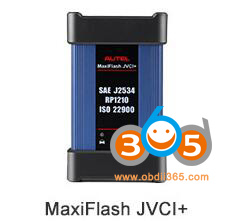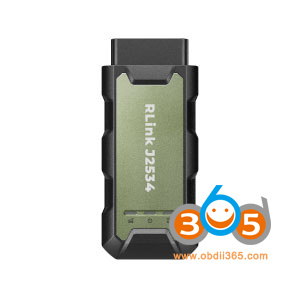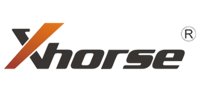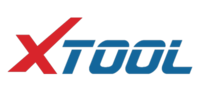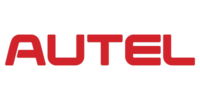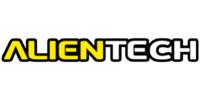Autel MaxiFlash J2534 vs Topdon Rlink J2534 which to buy? Is the compatibility similar?
The Autel MaxiFlash J2534 (also Maxiflash JVCI) and the Topdon RLink J2534 are both SAE J2534-compliant pass-thru devices designed for OEM-level vehicle diagnostics, ECU reprogramming, and coding. They enable technicians to interface with manufacturer-specific software (e.g., Toyota Techstream, Honda iHDS) via a PC, supporting tasks like module updates and fault repairs. Neither includes OE software subscriptions, which must be purchased separately from the vehicle makers.
Key differences lie in ecosystem integration, connectivity, price, and brand-specific optimizations. The Autel is more tightly integrated with Autel’s diagnostic scanners, making it ideal for users already in the Autel ecosystem. The Topdon is more affordable and offers a streamlined driver management system for broader OEM compatibility, appealing to budget-conscious independents. Both support modern protocols like CAN FD and DoIP, but real-world performance can vary by software.
|
Feature/Specification
|
||
|---|---|---|
|
Compliance Standards
|
SAE J2534-1 & J2534-2, D-PDU, RP1210, CAN FD, DoIP
|
SAE J2534, D-PDU, RP1210, CAN FD, DoIP
|
|
Connectivity
|
Bluetooth wireless, USB, Ethernet; built-in WiFi antenna for advanced networking
|
Wired USB Type-C only (no wireless); stable but less flexible
|
|
Operating System Support
|
Windows (PC-based); seamless with Autel MaxiSys tablets (e.g., Elite II, MS909)
|
Windows 7/8/10/11 (64-bit PC only); no tablet integration
|
|
Vehicle/OEM Coverage
|
Broad: Toyota Techstream, Volvo VIDA, Honda HDS, Jaguar-Land Rover IDS, BMW 3G; all makes/models with OE software
|
17+ brands (e.g., Ford IDS, Nissan Consult, BMW ISTA, Mercedes Xentry); focuses on 13+ core brands
|
|
Key Features
|
– Fast reprogramming for newest controllers
– Data storage & internet updates
– Oscilloscope/multimeter in VCMI variant
– Direct BMW/Benz ECU programming with Autel scanners
|
– DMS (Driver Management System) for one-click driver installs/updates via RLink Platform
– Compact/lightweight design
– High-speed wired data transfer
– Responsive tech support
|
|
Power Supply
|
AC/DC adapter (12V); vehicle-powered via OBD-II
|
AC/DC adapter; vehicle-powered via OBD-II
|
|
Dimensions/Portability
|
Compact VCI form factor; portable with cables included
|
Pocket-sized (lightweight, fits in toolbox); includes zippered case
|
|
Price (Approximate, USD)
|
$800–$1,000 (varies by retailer; higher for bundles with scanners)
|
$299 (more affordable entry point)
|
|
Pros
|
– Proven reliability in Autel ecosystem
– Wireless flexibility
– Extensive Autel-specific programming (e.g., BMW/Benz)
|
– Cost-effective
– Easy setup with RLink Platform
– Broad OEM driver access
– Stable wired performance
|
|
Cons
|
– Higher cost
– Requires binding SN for some older models (newer versions simplified)
– Dependent on Autel for full potential
-need the subscription for Autel tablet
|
– No wireless option
– Potential driver conflicts (e.g., with GM GDS2 or other J2534 tools)
– Limited to PC (no scanner integration)
|
|
Best For
|
Professional shops using Autel tools; high-volume BMW/Benz/Toyota work
|
Independent technicians seeking value; multi-brand OE programming on a budget
|
Detailed Differences
1. Integration and Ecosystem:
The Autel shines in hybrid use—pair it with an Autel MaxiSys scanner for direct ECU programming on select vehicles (e.g., Mercedes-Benz and BMW without a PC). The Topdon is PC-centric, relying on its RLink Platform for driver management, which simplifies installing/updating software for brands like Ford or Porsche but lacks scanner synergy.
2. Connectivity and Speed:
Autel’s Bluetooth enables wireless freedom, reducing cable clutter in busy shops. Topdon’s wired USB prioritizes stability and low latency, which is preferable for long programming sessions but limits mobility.
3. Ease of Use and Setup:
Topdon edges out with one-click driver downloads via its platform, ideal for quick OEM switches. Autel requires initial driver installation from CD/USB and occasional firmware updates, but it’s straightforward for experienced users.
4. Performance and Reliability:
Both handle core J2534 tasks reliably, but user feedback highlights Autel’s faster reprogramming speeds for complex jobs. Topdon is praised for affordability and support but may need workarounds for GM tools (e.g., uninstalling conflicting drivers).
5. Value and Support:
At under $300, the Topdon offers better entry-level value for occasional use. Autel’s premium price reflects its brand reputation and extras like waveform tools in advanced variants. Both provide lifetime support, but Topdon’s is noted for quicker responses.
If you’re in the Autel ecosystem or need wireless features, go with the Autel J2534. For cost savings and easy multi-OEM access, the RLink J2534 is a strong contender. Always verify compatibility with your specific OE software and vehicle models before purchase.




